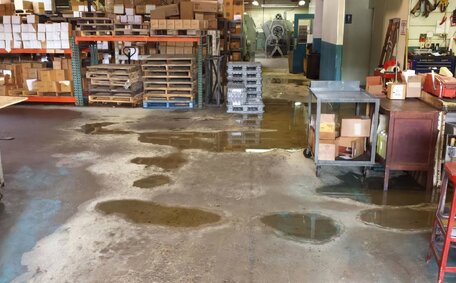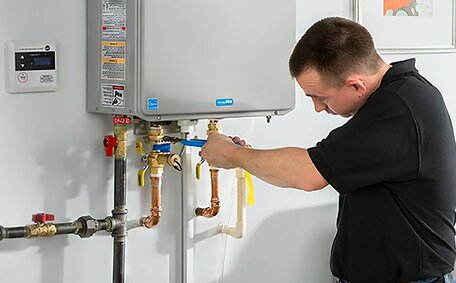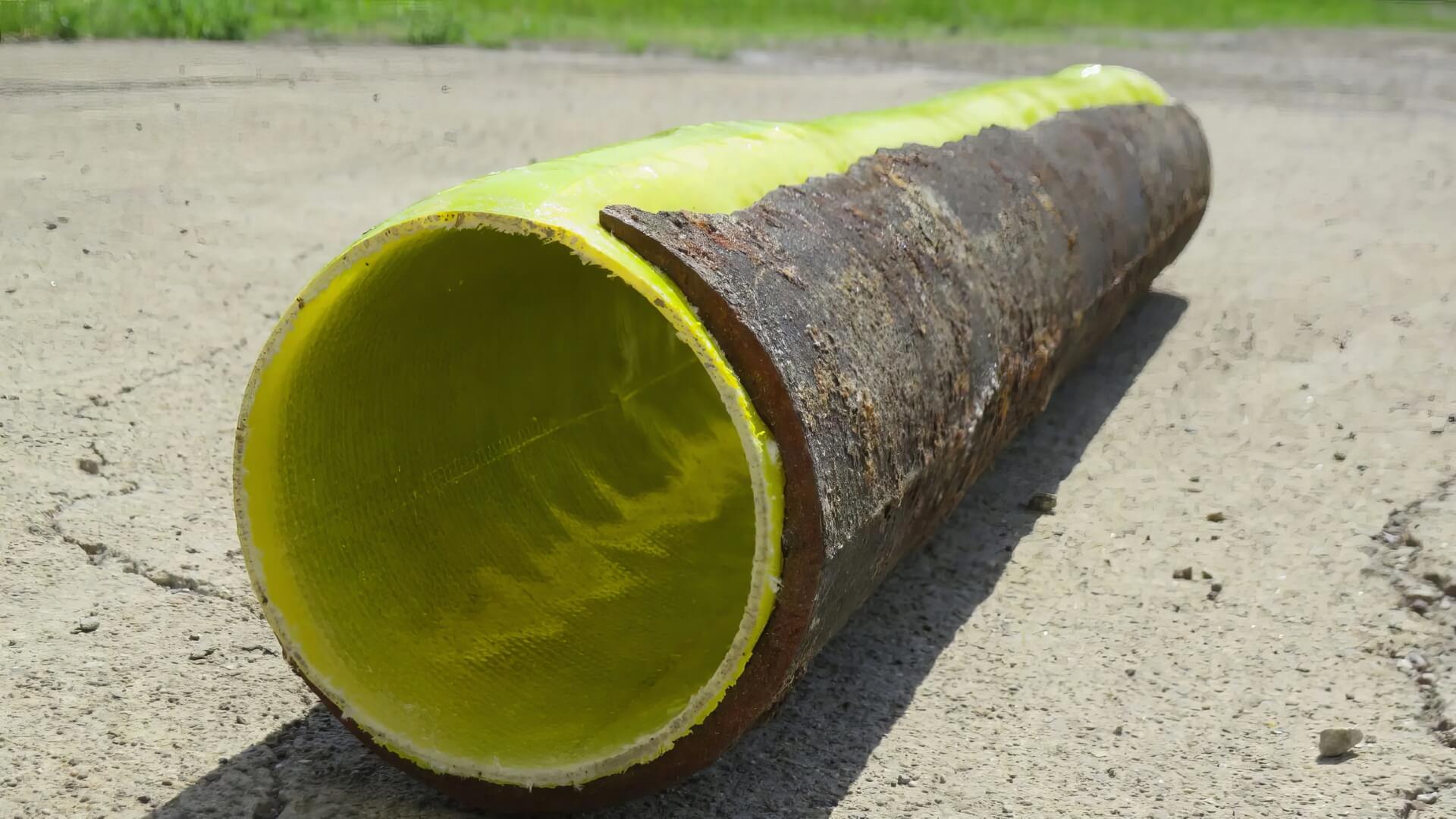
How To Fix Water Heater Issues
Can’t get hot water from your water heater? Try troubleshooting by checking the power supply, thermostat, heating elements and more. Call a pro plumber for repairs.
Read MoreBlocked drains, if left unchecked, lead to serious plumbing problems. Common culprits for blocked drains include:
Blocked drains impede water flow and can cause significant issues such as broken pipes, resulting in waste backflow into sinks, baths, and toilets. Unchecked debris accumulation in drains can cause blockages, potentially leading to burst pipes, water damage, mould, and unpleasant odours.
Luckily, homeowners can prevent many drain blockages with simple DIY maintenance strategies:
Early detection and prevention of minor drain clogs will maintain your plumbing system and save homeowners significant trouble. Do not hesitate to email or call us, as our team is adept in conducting thorough drain inspections and maintenance to adeptly handle any issues.
Maintaining clear, flowing drains is essential to protect your plumbing system and avoid costly repairs. Adopt this straightforward routine to maintain blockage-free drains:
By implementing these practical steps, you will effectively prevent clogs and safeguard against costly plumbing emergencies. Reach out to our cleaning services unit if you harbour suspicions of a drain blockage or need professional drain inspections.
Pouring a kettle of hot water down the drain is an effective DIY method for clearing minor clogs, especially those caused by grease or fat buildup. Exercise caution when using boiling water on PVC piping to prevent damage to your piping; restrict this practice to metal drain pipes.
Heat is vital for dissolving grease and clearing clogs within drain interiors.
To use this home remedy:
To clear blocked drains thoroughly, you may need to repeat the process several times. Following our advice proved to be very effective in showing that this accessible, chemical-free method resolves minor clogs before they turn into substantial blockages.
If DIY methods don’t unclog your drain, get in touch with our team. Our authorised experts schedule professional drain cleaning routines, using state-of-the-art equipment that we highly recommend to tackle even the most stubborn clogs.
Before enlisting professional help, you can use common household items to attempt dislodging a clog. Having the right DIY tools on hand, homeowners can do much to rectify minor to moderate drain blockages:
A cup plunger employs suction to loosen blockages and is particularly effective for clearing sinks, as well as tubs and shower drains. Follow these steps:
A wire hanger can also serve as a makeshift drain snake, helping by feeding a long, flexible cable with a spiral tip down the pipes to hook and extract debris. Follow these steps:
Use an electric drain snake for deep pipe clogs to apply greater force. I would highly recommend taking care not to scratch pipes when clearing blocked drainages using snakes.
Equipped with plungers and drain snakes, you can clear your blocked drains effectively at the first sign of a clog. Contact our drain cleaning services if home techniques fall short in unblocking drains—we boast professional hydro jet drain cleaners.
When it comes to safe cleaning, opting for a natural cleaner like natural drain cleaners offers an effective, non-toxic alternative to harsh chemical solutions. Natural cleaners also come with the benefit of being highly affordable using common household ingredients.
A preferred homemade solution is vinegar baking soda mixed together, utilising pantry staples that actively break down drain obstructions. Follow these steps:
For a fresh scent to go along with your clean pipes, consider adding lemon juice to the mix when tackling critically blocked drains, and repeat the natural cleaning process several times as needed. The combined reaction forces debris loose while the vinegar dissolves buildups.
Mix baking soda and salt to create a powerful natural drain cleaner for tough clogs:
The salt functions as a gritty scrubber, helping to clear any accumulated residue while the baking soda adheres to grease. The hot water allows maximum cleaning power. For tough clogs, use daily for a week.
For a more eco-conscious choice, opt for natural drain cleaners to flush out your pipes, offering an affordable and effective solution. Contact our team if DIY methods fail to address your blocked drain concerns.
While many minor drain issues can be addressed with simple DIY methods, more serious blockages typically require a professional plumber’s expertise.
Signs such as water backing up indicate that it’s time to seek professional assistance:
A professional plumber has specialised equipment to examine your plumbing system, employing tools that can identify any underlying issues and clear difficult clogs with drain snakes, hydro jetting machines, and camera inspections. They can also detect leaks, pipe damage or root infiltrations.
For proactive maintenance, drain inspections can be scheduled annually by homeowners to pinpoint and rectify minor issues early on. This proactive maintenance can avoid costly emergency plumbing.
Don’t hesitate to call our Gold Coast plumbing team — they did an excellent job when you have a blocked drain or notice any signs of trouble. Our plumbing service caters to both residential and commercial needs around the clock.
Installing drain protectors such as hair catchers, sink strainers, and drain screens helps trap debris before it enters pipes and causes clogs. There are a few options homeowners can easily install themselves:
Strainers fit into sink drains to catch food scraps and particles. Models with removable grates make cleaning trapped debris easy. Strainers ought to be rinsed weekly, ensuring nothing untoward is washed down into the pipes.
The Tub Shroom fits tub drains to capture hair for easy removal, allowing water to flow.
Hair catchers, which are things anyone can use, employ rubber stoppers with small perforations to catch stray hairs. Simply lift out the stopper and remove hair clumps when needed.
Protectors must be cleaned regularly to ensure that they can clean your drains effectively and maintain longevity. Monthly, use boiling water or baking soda mixtures to scrub fixtures free of grease buildup or soap scum.
Drain guards protect pipes and are your first defence against clogs. Contact our team if you encounter a severe kitchen or bathroom drain blockage - Our emergency plumbing services are available 24/7.
To maintain healthy drains and use sustainable plumbing, adopting eco-friendly habits is crucial. Here are some tips with simple, everyday steps you can take:
Not only do these eco-habits benefit your home’s plumbing, they help protect waterways and oceans from pollution. Adopt planet-friendly drain care for cleaner pipes and cleaner environments.
Can’t get hot water from your water heater? Try troubleshooting by checking the power supply, thermostat, heating elements and more. Call a pro plumber for repairs.
Read MoreCloudy or milky hot water coming from your taps is generally harmless and caused by trapped air bubbles in the water. Simply running the tap for a little while will usually clear up the water. If the cloudiness persists, it could be caused by sediment buildup or issues with your pipes.
Read MorePipe relining involves inserting a tube inside damaged pipes to repair cracks and leaks without digging. This trenchless method may allow pipes and plumbing fixtures to be relocated during bathroom renovations. Contact our expert plumbers to understand if pipe relining can reposition your pipes and fixtures.
Read MoreBaulkham Hills, 2153 NSW
We will call back as soon as possible.




